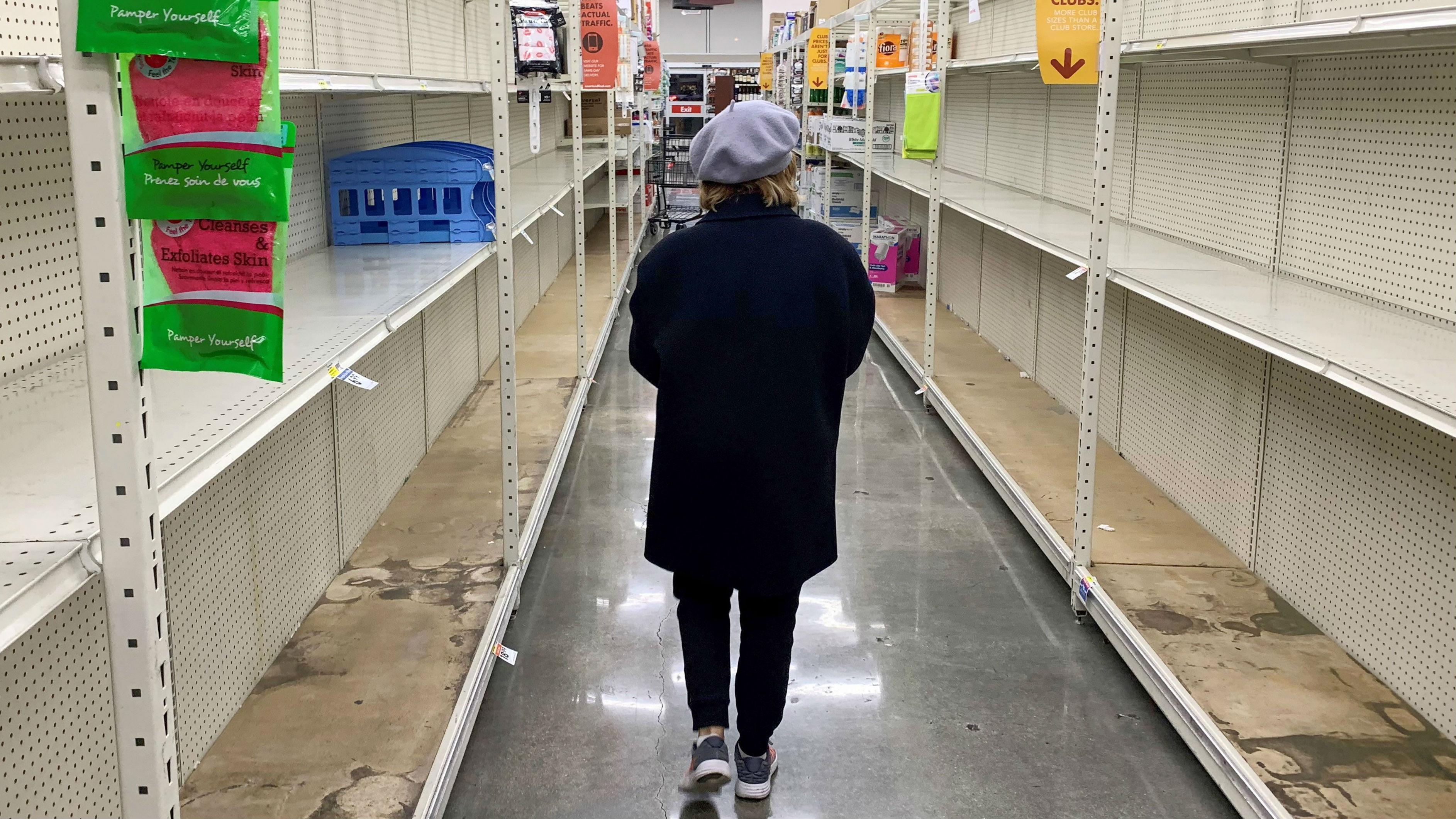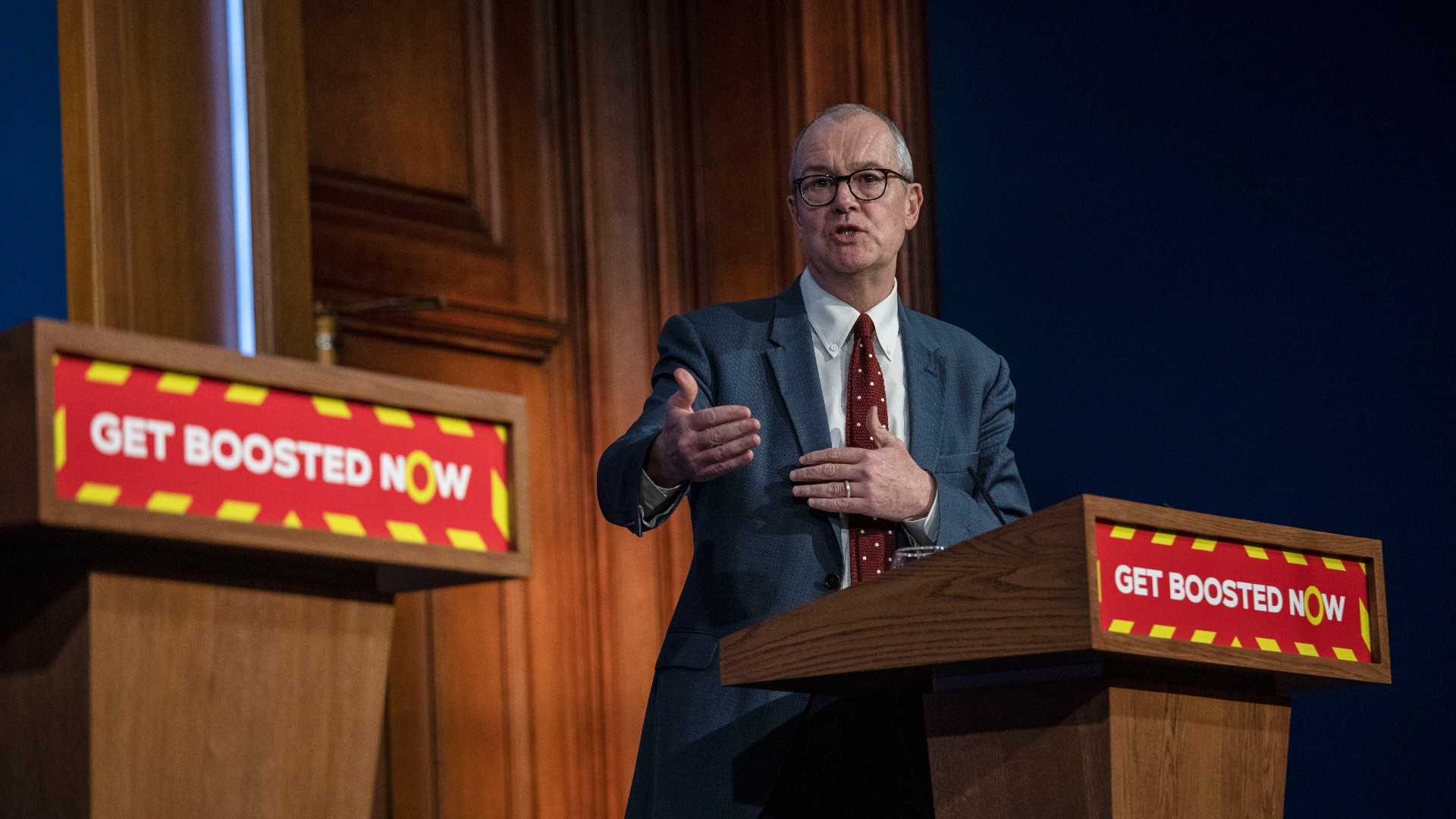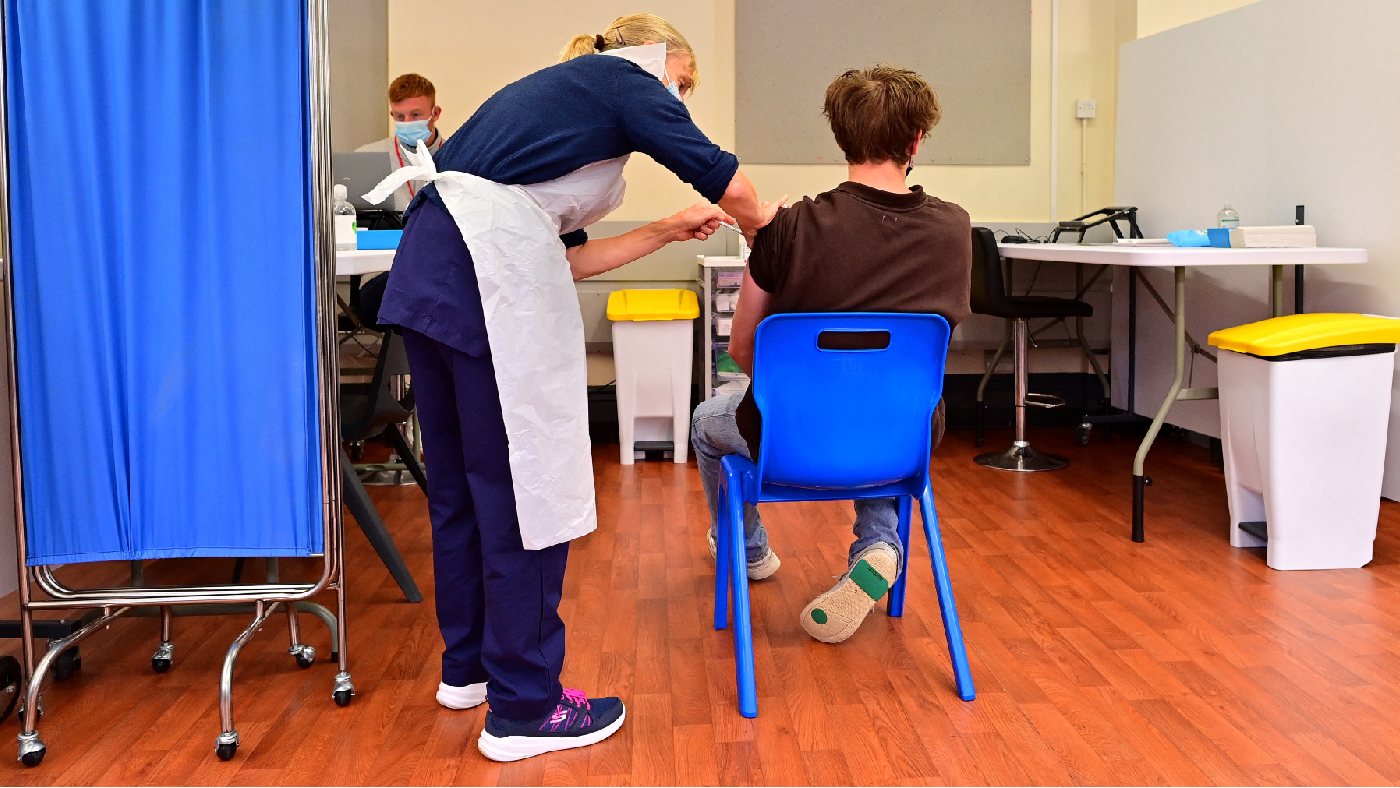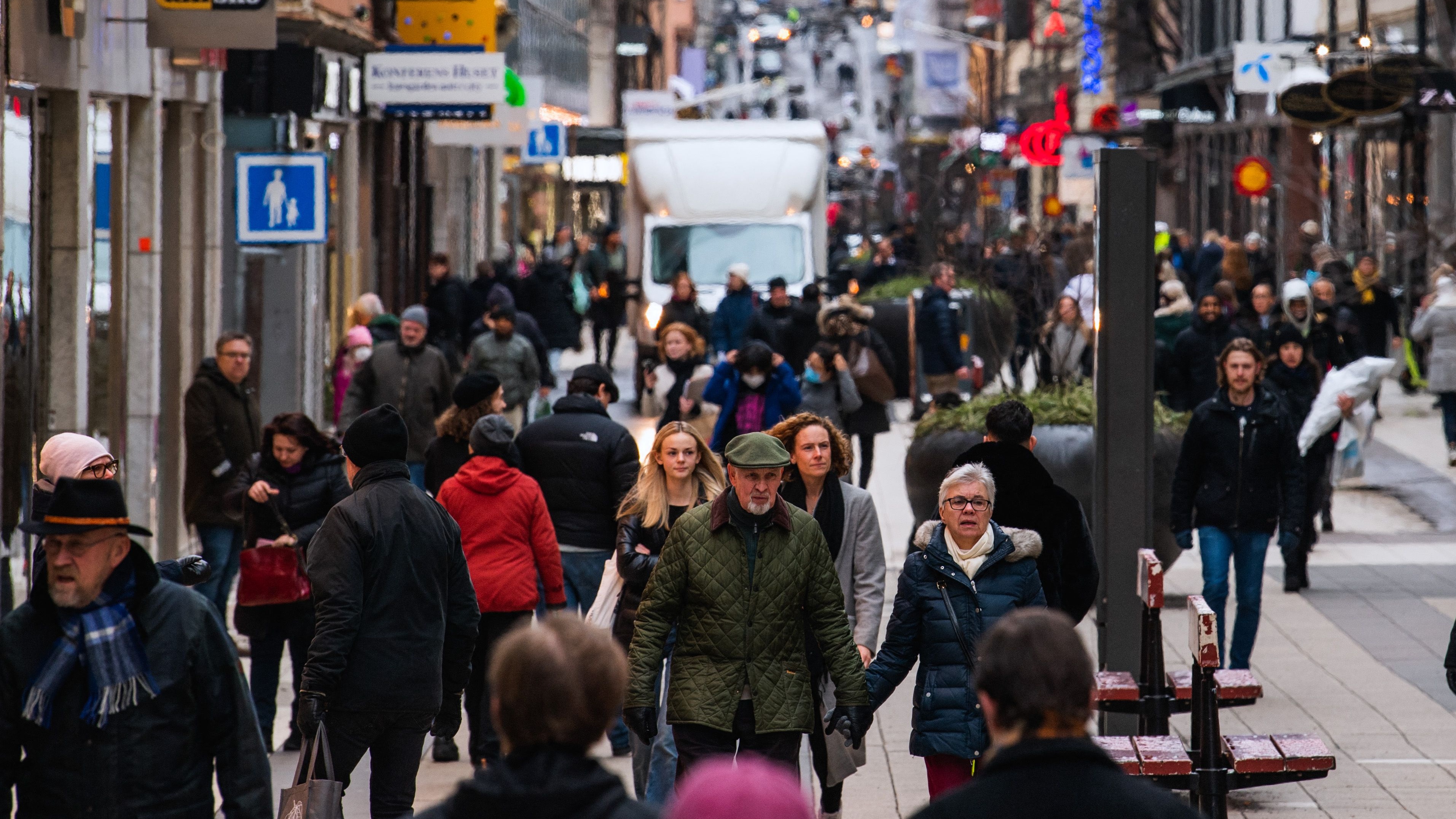Coronavirus: why people are panic buying loo roll
Organisational behaviour expert looks at why the Covid-19 crisis makes the public want to stock up

A free daily email with the biggest news stories of the day – and the best features from TheWeek.com
You are now subscribed
Your newsletter sign-up was successful
Andy J. Yap, Assistant Professor of Organisational Behaviour at INSEAD Business School, has researched why the public stockpile in a crisis, in an article originally written for The Conversation.
The UK has found itself in a panic-buying frenzy in response to the novel coronavirus outbreak.
A very flustered Health Secretary Matt Hancock urged restraint and attempted to calm fears of shortages on BBC’s Question Time last week after being asked about a lack of paracetamol, dry pasta and toilet paper.
The Week
Escape your echo chamber. Get the facts behind the news, plus analysis from multiple perspectives.

Sign up for The Week's Free Newsletters
From our morning news briefing to a weekly Good News Newsletter, get the best of The Week delivered directly to your inbox.
From our morning news briefing to a weekly Good News Newsletter, get the best of The Week delivered directly to your inbox.
The UK is not alone. Social media has been flooded with images from across the world of shopping trolleys lined up at check outs, empty shelves and crazed shoppers carrying six-months’ worth of toilet paper. Just seeing this footage has fed the panic, escalating the problem far beyond anything that was noted during the Sars epidemic when digital connections were far less prevalent.
These kind of posts are spreading hysteria and false news to the extent that coronavirus hoaxes have, arguably, become dangerous in their own right. If they want panic buying to stop, governments need to demonstrate that they are in control through decisive action and sustained and transparent communication.
Regaining control
In research I conducted with marketing professors Charlene Chen and Leonard Lee, we found that consumers compensate for a perceived loss of control by buying products designed to fill a basic need, solve a problem or accomplish a task. This is what we’re seeing as people rush to buy rice, cleaning products and paper goods in illogically large proportions.
A free daily email with the biggest news stories of the day – and the best features from TheWeek.com
This has led to price gouging and shortages of vital health equipment where it is needed most.
In times of crisis, people don’t want a huge debate, they want action. To assuage people’s anxiety and help them regain a feeling of control, it is up to governments to signal that they have a game plan in mind and are taking timely steps to address the problem.
Singapore – which has had no virus-related deaths, despite 160 cases and a rate of infection that’s been outpaced by recoveries – has emerged as an example of how to contain both the infection and maintain citizen’s trust.
A day after signs that people were panic buying rice and instant noodles, Prime Minister Lee Hsien Loong was on television calling for calm, and assured Singaporeans: “We have ample supplies, there’s no need to stock up.”
Singapore was one of the first countries to impose entry restrictions on anyone with recent travel history to China and parts of South Korea. The country has also introduced temperature screening, systems to identify people who have been in contact with carriers, and strict hospital and home quarantine regimes for potentially infected patients. Firm action, in the form of fines and jail time, is being taken towards those who breach these new rules.
The government has made regular public statements and been very frank with its people about the dangers posed by the coronavirus. A week after the panic-buying frenzy, things have calmed down and shoppers have gone back to purchasing items in normal quantities.
Getting it wrong
This contrasts with what is happening in Japan and Iran, where governments are under fire for their lack of transparency. This distrust stems from concerns that governments may be deliberately concealing or may not have access to accurate information.
This has led to people stockpiling goods, which in Japan has resulted in shortages of toilet paper. Longs lines and price surges have followed. Theft is now so common that some establishments have taken to chaining rolls to their dispensers.
While the UK government has published an official coronavirus action plan, setting out advice for how the public should respond during each stage of the outbreak and what to expect if it becomes a pandemic, there have been hiccups in communication that have stoked rather than tempered fears.
The most recent problem was the decision to withhold daily updates about the geographical spread of the virus. The government has since made a u-turn on this, calling it a “a communication fumble” and acknowledging that such a lack of transparency would only lead to feelings of government secrecy and aid the potential spread of fake news.
How action is communicated, including when and how often, is critical to diffusing panic. The situation of any pandemic is so volatile that government policies may need to evolve rapidly in response. As seen in Singapore, strong communication can be the difference between seeming to understand the dynamic nature of the situation and not knowing how to address it at all.
Andy J. Yap, Assistant Professor of Organisational Behaviour, INSEAD
This article is republished from The Conversation under a Creative Commons license. Read the original article.
-
 Trump touts pledges at 1st Board of Peace meeting
Trump touts pledges at 1st Board of Peace meetingSpeed Read At the inaugural meeting, the president announced nine countries have agreed to pledge a combined $7 billion for a Gaza relief package
-
 Britain’s ex-Prince Andrew arrested over Epstein ties
Britain’s ex-Prince Andrew arrested over Epstein tiesSpeed Read The younger brother of King Charles III has not yet been charged
-
 Political cartoons for February 20
Political cartoons for February 20Cartoons Friday’s political cartoons include just the ice, winter games, and more
-
 The new Stratus Covid strain – and why it’s on the rise
The new Stratus Covid strain – and why it’s on the riseThe Explainer ‘No evidence’ new variant is more dangerous or that vaccines won’t work against it, say UK health experts
-
 Covid-19: what to know about UK's new Juno and Pirola variants
Covid-19: what to know about UK's new Juno and Pirola variantsin depth Rapidly spreading new JN.1 strain is 'yet another reminder that the pandemic is far from over'
-
 Vallance diaries: Boris Johnson 'bamboozled' by Covid science
Vallance diaries: Boris Johnson 'bamboozled' by Covid scienceSpeed Read Then PM struggled to get his head around key terms and stats, chief scientific advisor claims
-
 Good health news: seven surprising medical discoveries made in 2023
Good health news: seven surprising medical discoveries made in 2023In Depth A fingerprint test for cancer, a menopause patch and the shocking impacts of body odour are just a few of the developments made this year
-
 How serious a threat is new Omicron Covid variant XBB.1.5?
How serious a threat is new Omicron Covid variant XBB.1.5?feature The so-called Kraken strain can bind more tightly to ‘the doors the virus uses to enter our cells’
-
 Will new ‘bivalent booster’ head off a winter Covid wave?
Will new ‘bivalent booster’ head off a winter Covid wave?Today's Big Question The jab combines the original form of the Covid vaccine with a version tailored for Omicron
-
 Can North Korea control a major Covid outbreak?
Can North Korea control a major Covid outbreak?feature Notoriously secretive state ‘on verge of catastrophe’
-
 Did Sweden’s Covid-19 experiment pay off in the end?
Did Sweden’s Covid-19 experiment pay off in the end?In Depth Scandinavian country had lower excess death rate than many but immigrants and elderly bore the brunt